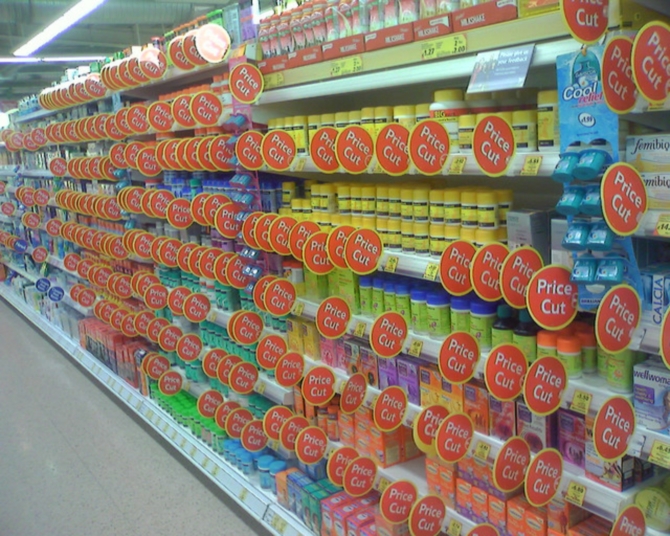Although the end of the recession has had a positive impact upon the revenues of most retailers in the UK, the supermarket sector remains something of an anomaly. With competition from discounters high and pressure mounting to drop prices, the traditional “Big Four” have seen their dominance diminish hugely – and according to Tesco’s latest set of results, this is a situation which has continued to worsen as 2014 progresses.

In the three months to the 24th of May, Tesco saw like for like sales excluding petrol drop by 3.7 per cent, marking the third consecutive quarter of falling sales for the UK’s largest supermarket brand. This follows an announcement last month that annual sales for the last year dropped by 6 per cent; the second year in a row that Tesco had failed to grow.
Data released earlier this week by grocery market analyst Kantar Worldpanel shows the news only worsening for Tesco, as in the three months to the 25th of May the retailer’s market share dropped to 29 per cent. This compares poorly to the relatively dominant 30.5 per cent share held only a year previously, and demonstrates the growing influence of competitors and discounters in the supermarket sector.
In a statement, chief executive Philip Clarke remained convinced that the programme of changes implemented by Tesco are beginning to have an effect, but warned that challenges in trading would remain “throughout the coming quarters.”
He said; “We are pleased by the early response to our accelerated efforts to deliver the most compelling offer for consumers.
“We expect this acceleration to continue to impact our headline performance throughout the coming quarters and for trading conditions to remain challenging for the UK grocery market as a whole.”
The efforts referred to by Mr Clarke largely concern the retailer’s drive to lower prices on everyday items including milk, bread and eggs – something which close competitors Asda, Sainsbury’s and Morrisons have also committed themselves to. According to the report, sales of these items rose by 28 per cent during the quarter, indicating that the price drops are indeed beginning to have an effect.
Tesco has, in addition, turned its attention to its stores themselves. During the next year, around 650 outlets are expected to be upgraded around the country, providing a more efficient layout for consumers in a hurry.
Yet unfortunately, not everyone is convinced that Tesco’s turnaround plan will yield results in the near future. Head of equities at Hargreaves Lansdown Stockbrokers, Richard Hunter, claims that any investor considering buying into Tesco “would need to ponder whether Tesco is a company showing glimpses of revival given its turnaround plan, or whether it is past its sell-by date.”
He continued; “The wider ferocity of competition is making the implementation of the plan difficult to achieve, although the company is trying to position itself within the three largest requirements of the supermarket sector at present, in the form of price, online and convenience stores.”
Do you think Tesco is “past its sell-by date”?
Previous Post
New Look seeks to ‘Grab More Space’ despite French Woes